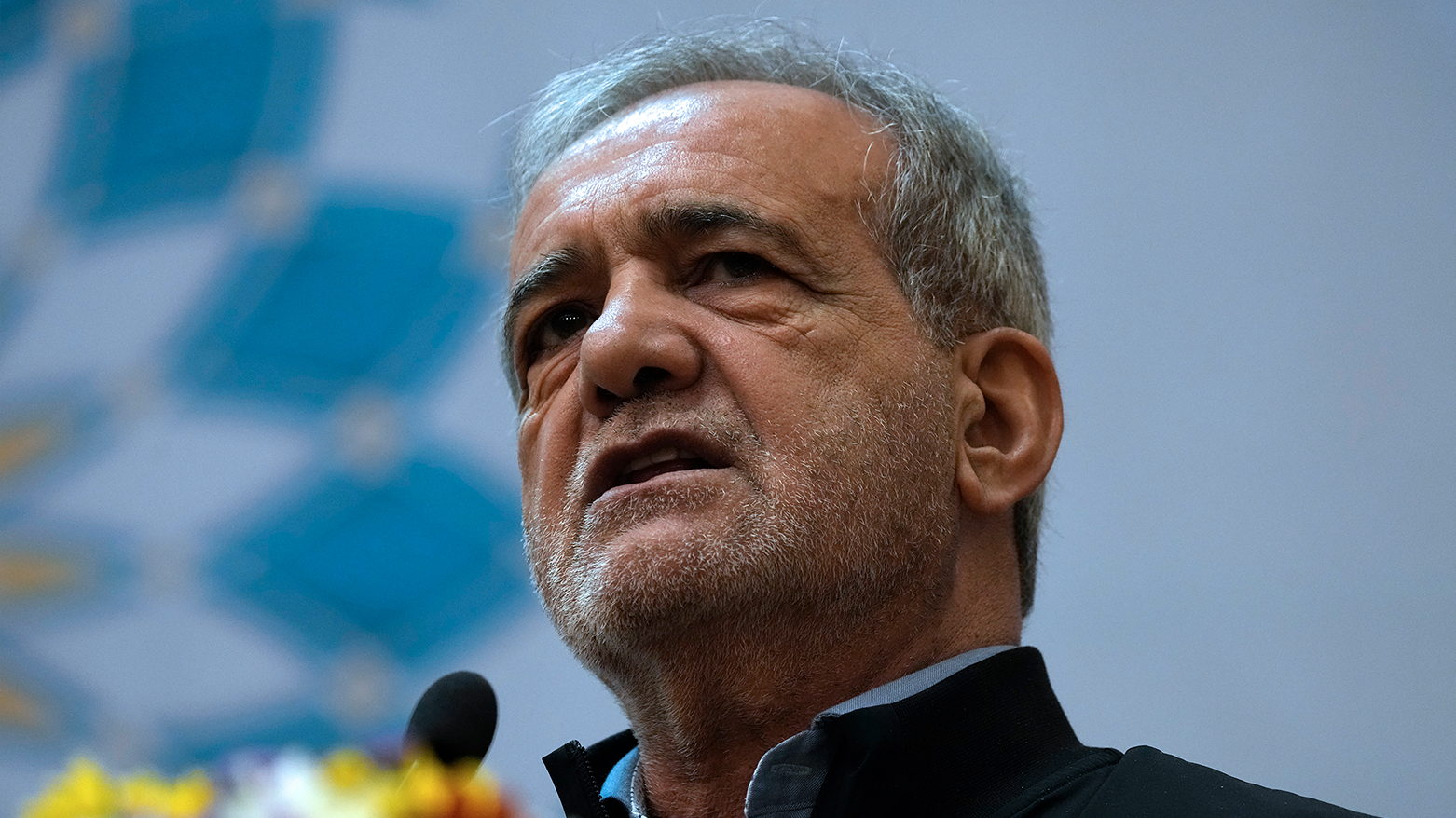Pezeshkian Asserts Adversaries ‘Cannot Block Our Path’ After UN Sanctions Snapback
Following the UN's sanctions snapback, Iranian President Pezeshkian defiantly stated, "Adversaries cannot block our path." He hailed the nation's youth as its "true wealth," not oil and gas, and vowed to overcome obstacles by reforming the educational system to foster problem-solvers.

ERBIL (Kurdistan24) – Iranian President Masoud Pezeshkian on Saturday delivered a defiant and resolute message in the wake of the re-imposition of United Nations sanctions, declaring that the adversaries of the Islamic Republic "cannot block our path" and asserting that Iran will never surrender to "excessive demands."
Speaking at a ceremony honoring the country's brightest young scientific minds, Pezeshkian framed the international pressure as just another obstacle that Iranian intellect and determination will overcome, while pivoting to his core domestic agenda: a fundamental transformation of Iran's educational system to foster a new generation of problem-solvers.
In his first public comments following the UN Security Council's failure on Friday to prevent the "snapback" of international sanctions, President Pezeshkian drew a parallel between personal and national resilience. According to Iran's state-run IRIB News Agency, he told an assembly of World Science Olympiad medalists, "I have personally faced situations many times where some have tried to block our path of movement and growth, but in the face of any obstacle, our minds and intellects either find a way or make a way."
He explicitly linked this philosophy to his educational reform efforts, stating, "Our main motivation for transforming the educational system is to raise the children of this country in such a way that when they face an obstacle in pursuit of any goal, they immediately seek to find or create a path without any hesitation."
The Iranian President’s speech, delivered at a ceremony honoring 38 young medalists in fields ranging from physics and artificial intelligence to economics and mathematics, was an ode to Iran's human capital, which he repeatedly described as its "true wealth."
He argued that this intellectual resource, not the country's vast oil and gas reserves, is the key to overcoming its myriad challenges, including the renewed international sanctions. "It is my belief, and I have repeatedly stated, that the true wealth of the country is not its oil, gas, and gold mine resources, but you, the elite and creative youth of the country," Pezeshkian said.
He pointed to the progress of many other nations that have thrived without natural resources, solely by investing in their people, and questioned why Iran, with its "vast God-given resources," has failed to progress as it should have.
"We must change our perspective and look within ourselves," he urged. Pezeshkian argued that the core problem lies in a "wrong perspective" that fails to fully harness the potential of the country's creative and scientific minds. He insisted that if the government provides the right platform and paves the way for its innovators, "they can solve all problems."
In a direct reference to the recent military escalations in the region, which have seen Iranian nuclear facilities targeted, Pezeshkian made a clear distinction between physical infrastructure and the intellectual capital that created it.
"The enemy may be able to bomb our scientific achievements," he acknowledged, "but it is our experts and scientists who built these facilities, and they are the main wealth and asset of the country, not what they have built and produced."
Pezeshkian revealed that he has dedicated the majority of his time in office to the monumental task of reforming Iran's educational system.
"My main concern over the past year has been to create a suitable platform for identifying, attracting, nurturing, and realizing the potential of the country's elite adolescents and youth, so that by relying on them, we can solve problems and build the future of the country," he explained.
This long-term vision, he suggested, is the ultimate answer to external pressures like the UN sanctions.
"It is enough to believe that we can overcome obstacles and that the ill-wishers of this land cannot block our path," he declared. "It is by no means possible to stop someone who has the determination, will, and ability to progress. We will never surrender or bow down to excessive demands, because we have the ability and power to change, and we just need to trust those who have the ability and will."
The Iranian President also took aim at the bureaucratic inertia he sees as a major internal impediment to progress, describing the country's administrative system as "frozen" and resistant to change. "We must strive to break the molds," he said, speaking directly to the young honorees, "and you, who are not yet in these molds, can much more easily use your creativity and initiative to reform affairs and solve problems."
He framed the current challenges as a catalyst for innovation, remarking that "the rule is that when a person is under pressure and surrounded by obstacles, their creativity emerges more." The government's role, he said, is to provide a platform for this creativity to flourish "fairly throughout the country" and to foster an educational system "based on awareness of problems and the motivation to solve them."
In his concluding remarks, Pezeshkian projected a vision of an empowered Iran, led by its educated youth, playing a dominant and constructive role in the region. "You can build Iran and bring it to the peak of progress," he told the students.
He then made a thinly veiled reference to Israel, stating, "We must not allow a criminal, illegitimate regime to impose its will on the region by force." He asserted that a scientifically and intellectually advanced Iran "can bring prosperity, justice, and fairness to itself and the region."
The ceremony concluded with Pezeshkian and Iran's Minister of Education presenting plaques of honor to the 38 decorated young scholars.